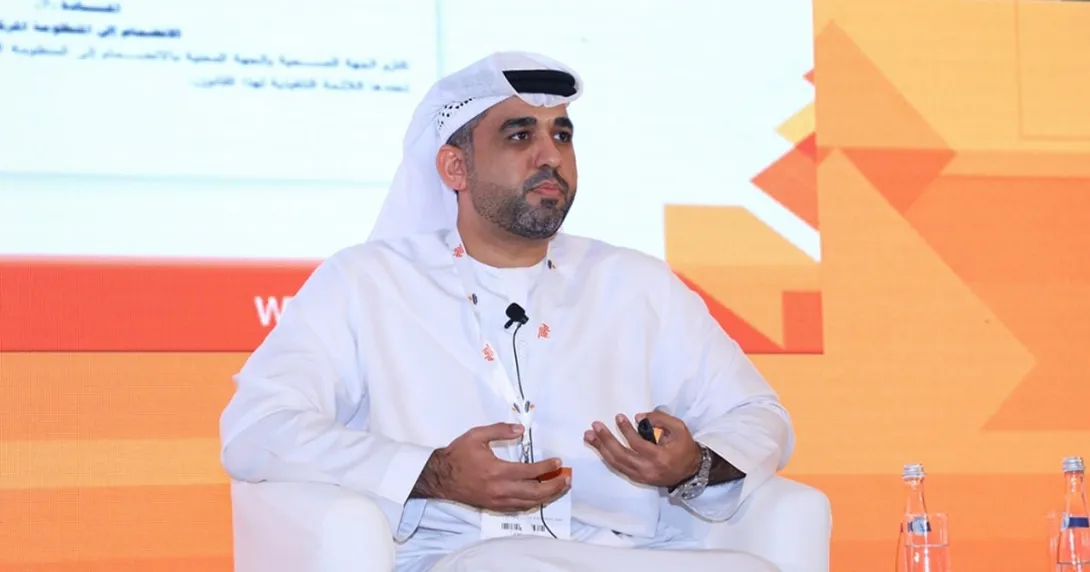
Increasing the levels of digital maturity is at the top of the political agenda when looking at the Middle East, and observing countries such as the United Arab Emirates, Kuwait, Oman and the Kingdom of Saudi Arabia (KSA). At the 3rd GCC eHealth Workforce Development Conference hosted in Dubai, the region’s healthcare leaders presented their strategic initiatives for better health and care. HIMSS participated in the conference’s HIE Summit and announced plans to support digital transformation in the region by hosting a HIMSS CIO Summit in Dubai on 23 January 2022.
Ali Juma AlAjme, director of digital health department at the Ministry of Health and Prevention of UAE, set the tone for the conference during its opening session. “We want to make sure we have the digitisation of health services from twenty years from now, right now,” he said.
Federated health information exchange for UAE in full roll-out
In March 2021, the UAE started the roll-out of the Riayaty Digital Health Platform. The federated model will connect providers from the health authorities in Dubai (NABIDH) and Abu Dhabi (Malaffi) “to make sure we access all clinical data with a unified standard across the country”, AlAjme said. Sixty per cent, or 7.1 million, of UAE’s citizens, 207 healthcare facilities and 26,000 clinicians have so far signed up to Riayaty.
Riayaty is based on a central and integrated healthcare system with easy access to patients' health data in the UAE by linking together the public and private healthcare facilities. The platform is linked to other affiliate medical records - including 'NABIDH' and 'Malaffi' - to form a central database for exchanging public health information in real-time.
Private insurance sector drives change in Kingdom of Saudi Arabia
“We want to move to value based healthcare,” says Dr Nasser Aljehani, acting executive director of enablement and supervision at the Council of Health Insurance in KSA, who are the regulator for the private health insurance business.
To drive value-based healthcare (VBHC) transformation, the country has identified four core pillars, including enhancement of the primary care sector and its integration with secondary and tertiary care, as well as a “huge focus” on population health management.
“We are targeting the five major diseases: diabetes, hypertension, heart condition, obesity and tobacco. We are building population health management capabilities in the insurance companies and in the providers”, comments Dr Aljehani.
NPHIES, the national health information exchange platform, is one of the most important strategic projects in the Kingdom, Aljehani highlighted. It started in the private insurance sector because that sector is “the most mature in billing and revenue cycle management”.
“NPHIES will connect insurance policies and beneficiaries with our strategy so we can use data to connect the dots”, he continued.
“We are looking for standardised, unified and clean data to help accelerate the achievements of diagnostic related groups and VBHC”, added his colleague Abdullah Al-Sharqi, chief of technology & digital transformation.
Healthcare is a major vertical to build KSA’s insurance presence with a share of 56.7% of the total market; for comparison, in Europe healthcare has a total share of seven per cent of the insurance market. Today 11 million citizens have healthcare insurance in KSA, a number expected to triple to 21 million by the end of the decade.
HIMSS to host digital maturity deep dive at exclusive CIO Summit in Dubai in 2022
At the conference, HIMSS representatives, members of the HIMSS Middle East community and HIMSS Corporate Members hosted a meeting moderated by Dr Charles Alessi, chief clinical officer at HIMSS, that revealed the desire for further high-level regional and international exchange and learning.
To drive global learning and help accelarate ambitious health transformation projects across the region, HIMSS has announced that it will host a CIO Summit in Dubai on 23 January 2022. This private gathering of provider CIOs, government officials and other senior IT executives – from the region as well as from Germany, UK and the US - will help build regional and international relationships, addressing key challenges in care delivery and accelerating digital transformation through information and technology. More information will be available soon.
Find out more about HIMSS21 Middle East here.


